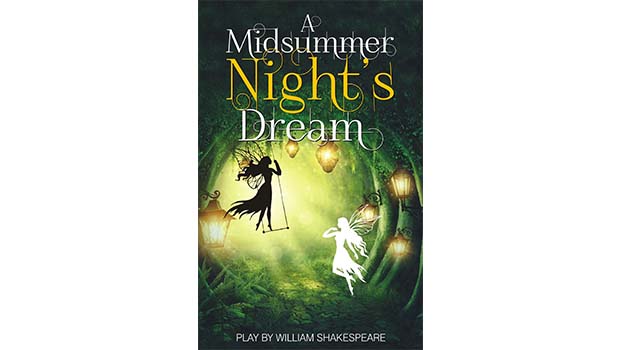Book Talk
A Midsummer Night’s Dream
by William Shakespeare

Bernie Gourley
The backdrop for this story involves two young men (Lysander and Demetrius) and two young women (Hermia and Helena.) Both men have a deep feeling for Hermia, which leaves poor Helena unloved though she loves Demetrius. Hermia loves Lysander, which means Demetrius is unloved by the one he loves and has no love for the girl pursuing him. Enter the village elders—notably Hermia’s dad, Egeus, and the Duke of Athens, Theseus—who really muck up the works by insisting that Hermia marry Demetrius (whose family apparently has more cash than does Lysander’s.) This causes Lysander and Hermia to elope into the forest, where things really get freaky. Helena, courting Demetrius’s favor, tells him where the eloping couple went, and Demetrius gives chase while Helena chases Demetrius.
In the woods outside Athens, there lived ferries. Oberon, king of the fairies, has in his possession a Cupid-like potion that will make its victim fall madly in love with the next person he or she sees. Oberon orders this potion deployed in two ways pertinent to the story. Seeing Demetrius quarreling with Helena, he orders his subject, Puck, to deploy it on Demetrius. In a fashion typical of a Shakespearean comedy, the potion is misapplied.
The other use of the potion (a subplot of the story) is on the faerie queen, Titania. Oberon is upset with Titania over an Indian boy of whom they’ve come into parentage. Titania falls for a workman who is in the woods rehearsing a play that may be the worst play ever. Most disconcertingly, she falls in love with this man, called Bottom, as he’s wearing a donkey head for his role in the play. As this is a comedy, the two unholy loves that developed are eventually rectified, but not before some amusing happenings.
At its most basic level, the play is a commentary on the folly of mucking about in love–whether as matchmaking elder or a Cupid-like faerie. On another level, it’s a critique of an unrealistic pursuit of a perfect vision of love. In this way, the message isn’t unlike Shakespeare’s Sonnet 130 (i.e. “My mistress’ eyes are nothing like the sun.”) This is seen in Demetrius’s ultimate recognition that he’s being an idiot by chasing after Hermia, when Helena is so clearly devoted to him. In other words, in love as in life the notion famously attributed to Voltaire that “The perfect is the enemy of the good” applies. As an aside, we also learn what Shakespeare sees as some of the mistakes of playwrights and theater companies as the assembled crowd watches Bottom and his comrades put on a hideous production.
I’d highly recommend reading this work for everyone. It’s Shakespeare; needless to say, the language is beautiful and the story is intriguing.


